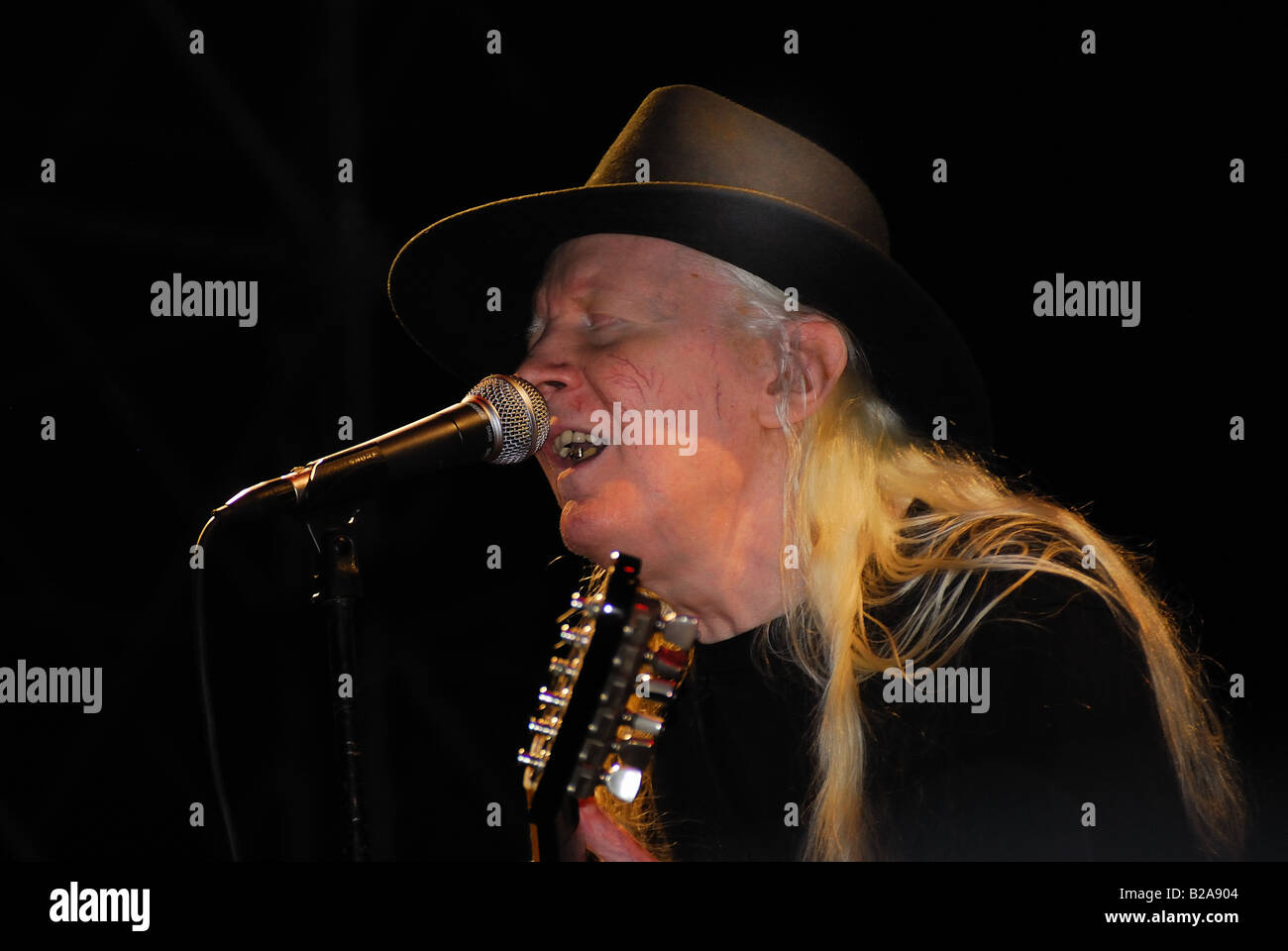

(In 2009, The Woodstock Experience, an album of his performance, was released.) His second Columbia album, Second Winter, was released in November 1969 and reached number 55. Meanwhile, Winter appeared at the Woodstock festival in August 1969. (Unfortunately, repackagings of Winter's early recordings continued to litter his discography throughout his career.) In October, Buddah Records followed with First Winter, and Janus Records released About Blues in November. In August, GRT Records released The Johnny Winter Story, consisting of material recorded in the early '60s it got to number 111. Winter's Columbia debut, titled Johnny Winter, was released on April 15 and peaked at number 23. Imperial Records bought The Progressive Blues Experiment from Sonobeat and re-released it in March 1969 it entered the charts and peaked at number 40. Winter quickly went into a recording studio with his band to cut his debut for CBS' Columbia label, but in the meantime other labels discovered that he had made a lot of recordings in his youth, and they began buying or leasing the early material. Paul set up a bidding war among major record labels that was won in February 1969 by CBS Records, which signed Winter for an advance of $600,000, the largest sum the label had ever paid to a new solo artist. If you can imagine a hundred and thirty-pound cross-eyed albino with long fleecy hair playing some of the gutsiest fluid blues guitar you have ever heard, then enter Johnny Winter." Among those who read the article was New York club owner Steve Paul, who hopped a plane to Texas and convinced Winter to hire him as manager. "The hottest item outside of Janis Joplin," they wrote, ".remains in Texas. His life was changed irrevocably with the publication of the December 7, 1968, issue of Rolling Stone magazine, which contained an article by Larry Sepulvado and John Burks about the Texas music scene. He signed with the Austin, Texas label Sonobeat Records, and in August cut The Progressive Blues Experiment, released locally. In 1968, Winter decided to focus exclusively on blues-rock, and he formed a trio with Tommy Shannon on bass and John "Red" Turner on drums. Winter had his first taste of chart success with a version of "Harlem Shuffle," recorded by the Traits, which was released by Universal Records, then picked up by Scepter Records and spent two weeks in the Billboard Hot 100 in November 1966. Other singles, either credited to Winter or some group pseudonym, were released over the next several years, including "Gangster of Love"/"Eternally," initially issued by Frolic Records in 1963 and picked up for national distribution by Atlantic Records in 1964, and "Gone for Bad"/"I Won't Believe It," also a 1963 Frolic single that was licensed by MGM Records in 1965. Both of them were members of Johnny & the Jammers, whose 45 "School Day Blues"/"You Know I Love You" was released by Dart Records in 1959. Before long they were playing professionally, and soon after that recording singles for small local record labels. They turned to music early on, Johnny Winter learning to play the guitar, while Edgar Winter took up keyboards and saxophone. He was born John Dawson Winter III on February 23, 1944, in Beaumont, Texas, where his brother Edgar Winter was born on Decemboth brothers were albinos. That never quite happened, but Winter did survive the high expectations of his early admirers to become a mature, respected blues musician with a strong sense of tradition. When Johnny Winter emerged on the national scene in 1969, the hope, particularly in the record business, was that he would become a superstar on the scale of Jimi Hendrix, another blues-based rock guitarist and singer who preceded him by a few years.


 0 kommentar(er)
0 kommentar(er)
